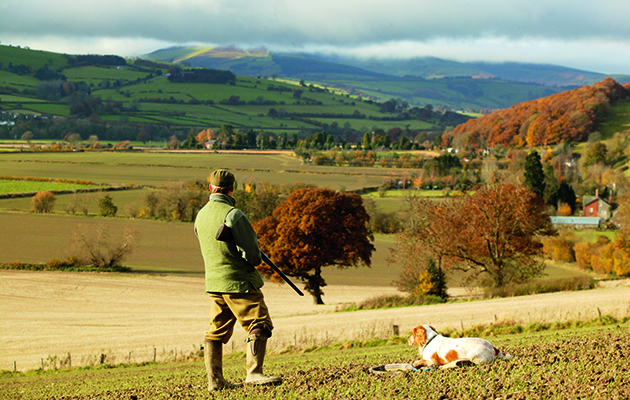Shooters look to post-Brexit future
Leaving the EU doesn't necessarily mean that the UK will abandon all EU legislation, but it might be spared further restrictions to wildlife management, say shooting organisations.

Finding the right gun for clays and game
Shooting organisations have revealed how they believe Britain’s vote to leave the European Union will likely impact on shooters.
The general consensus is that only time will tell, but there is speculation that Brexit spells good news for trapping, “contentious legislation” and firearms imports.
BASC Scotland director Dr Colin Shedden said that until the shape of the UK’s new relationship with the EU becomes clear, it is too early to speculate on whether Brexit means the UK has left behind the EU Birds and Habitats Directives, which UK conservation groups feel are best left unchanged, and the proposed changes to the EU Firearms Directives, many of which have been described as “irrelevant”.
Civil servants will have little time to spend on contentious issues
But he did conjecture that many divisive issues might be put on the back burner for a while: “Civil servants in Whitehall and in the devolved legislatures are going to have little time to spend on contentious issues such as lead ammunition, international trapping standards or licensing of grouse moors. They may well be otherwise engaged.”
The Countryside Alliance (CA), however, suggested that changes to the Firearms Directive will likely be concluded before a Brexit and that leaving the EU would not necessarily mean leaving behind EU legislation that had already been absorbed: “The Nature Directives are fully transposed into UK legislation through the 1981 Wildlife and Countryside Act and UK regulations. The UK is signatory to plenty of international agreements, these will be continued — species are not contained by borders and neither should our conservation work.”
Post-Brexit future of lead ammunition
Similarly, the future for the use of lead ammunition in the UK following Brexit is also unclear. The CA said: “It is still, and will remain for a while, unknown as to whether the continued use of lead ammunition will be restricted by the REACH (Registration, Evaluation, Authorisation and Restriction of Chemicals) process and the European Chemicals Agency.
“Regardless of our relationship with the EU, any restriction on the manufacture of lead ammunition in Europe will have a massive knock-on effect in the UK, leading to issues of import of ammunition and increased domestic pressure for a ban.”
Trapping standards post-Brexit
The Agreement on International Human Trapping Standards was due to be introduced in the UK this month, and could ultimately lead to commonly used fenn traps being banned for use on some pests. But pest control, farming and gamekeeping interests were able to negotiate a two-year delay on implementation to July 2018 and the CA says that there is now doubt as to whether the UK will have to introduce the agreement at all following Brexit. Leading firearms auctioneers
Holt’s said buyers might be better off thanks to Brexit: “In view of the UK’s decision to begin its removal from the EU we [can] reassure you that at present everything remains as it was before here at Holt’s.
“Early indications are that there will be no import VAT (and no import duty) on goods being imported from Europe to be sold in UK auctions. Indeed the UK might well now abolish import VAT on the hammer price of those goods coming in from outside the EU, a position which we used to have but were not allowed to continue with under EU rules.”
Read more about the future of shooting outside of the EU in this week’s issue of Shooting Times (13 July 2016) on page 9.








